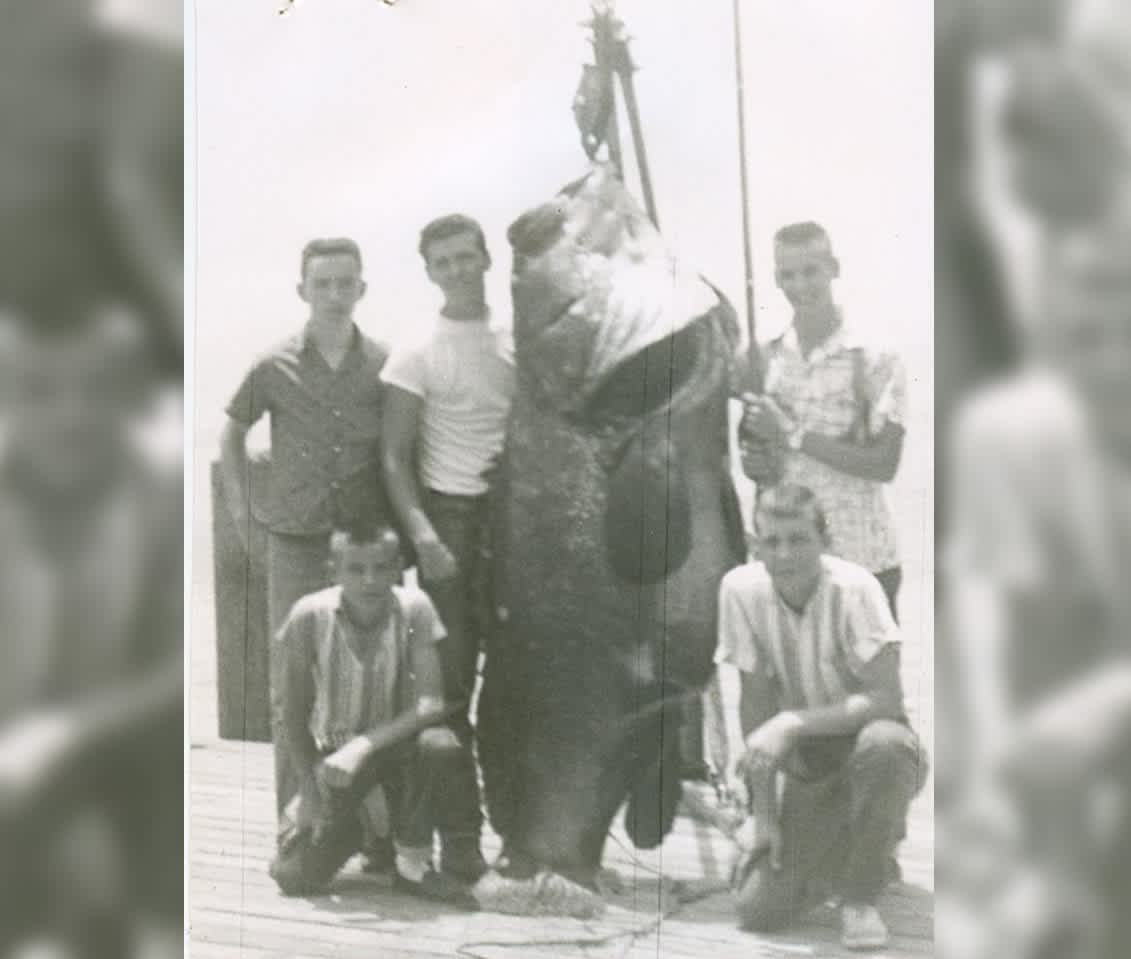5 World Fishing Records That May Never Be Broken
Daniel Xu 10.06.15

These are the legendary records. For decades, these fish records have stood unbroken, and while some of them may be unseated at any time, we won’t be holding out breath. In some cases, it is simply because landing a record-sized fish and bringing it out of the water is much more difficult—or outright illegal—due to a fish’s protected status. In other cases, it’s simply because the record was so large and dominating, they brushed aside all other contenders.
Here are the five of the oldest fish records currently recognized by the International Game Fish Association. Over the years there have been a fair bit of competition for these coveted spots in the record book, and numerous cash prizes have been offered for any angler lucky enough to surpass them. So far, none have yet managed to unseat them.
1. Largemouth bass

This is arguably the most famous and supposedly unbeatable record on this list. Back in 1932, George Perry caught a 22-pound, four-ounce bass from Montgomery Lake, Georgia and promptly ate it for dinner over the course of two nights. Luckily for him, he stopped by a local grocery store on a whim earlier and had the fish weighed. He then submitted the certified information to Field and Stream, and for nearly 80 years, his fish has held the undisputed world record—until a Japanese fisherman brought the first serious contender for the title. In 2009, Manabu Kurita caught a 22-pound, four-ounce bass in Japan’s Lake Biwa. Kurita’s fish was just the tiniest bit heavier, but not enough to hold the record solo. Nw Perry’s fish shares the spotlight with Kurita’s equally massive bass, waiting for the day it will be surpassed.
You can see Kurita’s catch below:
2. Smallmouth bass

If the record for largemouth bass is the most famous, then the record for smallmouth bass may be the most controversial. In 1955, David Hayes reeled in a 11-pound, 15-ounce bass from Tennessee’s Dale Hollow Lake while fishing with family. In 1996, a written statement from a dockhand claimed that the fish Hayes reeled in was tampered with, and the angler’s record was almost immediately stricken from the record books.
Only Tennessee still recognized his fish as a state record. It seems that state officials didn’t want to give up on Hayes, and a subsequent investigation by the Tennessee Wildlife Resources Agency found that the testimony against Hayes was fabricated. The dockhand was likely not even present at the time of the catch and the allegations against Hayes were determined to be without merit. At 80 years old, Hayes lived to see his record restored.
You can see a short interview with the angler below:
3. Muskellunge
Card
This massive 67-pound, eight-ounce muskie was caught by Cal Johnson from Lake Court Oreilles, Wisconsin in 1949. Johnson told Outdoors magazine that the fish was so big it had to be beached.
“We’ll have to beach him,” Johnson told his son Phil, who was manning the boat. “Work your way toward shore, but take it easy. I want this fish and I’m willing to fight him all day if necessary.”
The mount of Johnson’s fish now resides at the Moccassin Bar in Hayward, Wisconsin. At one point, a cash prize of $100,000 was offered to any angler who could beat Johnson’s record legally. Of course, the years have come and gone and no fisherman has yet laid claim to that prize.
4. Alligator gar
In 1951, Bill Valverde caught this massive alligator gar in Rio Grande, Texas. It weighed a mind boggling 279 pounds even. That record was surpassed by a 327-pound gar netted by a fisherman in Mississippi, but since that gar was considered a bycatch, Valverde’s record still stands. At above 250 pounds, alligator gar resemble more of the alligator than they do the gar. Valverde’s fish was no exception, although the specifics behind his story have been mostly forgotten. No confirmed picture of Valverde’s fish exists, but the above photo is believed to show the record gar shortly after it was caught.
5. Goliath grouper

Lynn Joyner caught this 680-pound goliath grouper off Florida’s Fernandina Beach in 1961. As big as a small whale, these irritable creatures can still be caught on rod and reel, but keeping them is often prohibited. As formidable as it may seem, the goliath grouper was once under the threat of extinction and is still classified as critically endangered. The fish’s reputation for fearlessness and its tendency to return to the same areas made it easy prey for commercial fishermen, and the grouper quickly dwindled. Under protection the fish has made a significant comeback and large groupers can be seen again off Florida’s shores. Especially large goliath groupers can grow up to 1,000 pounds.

